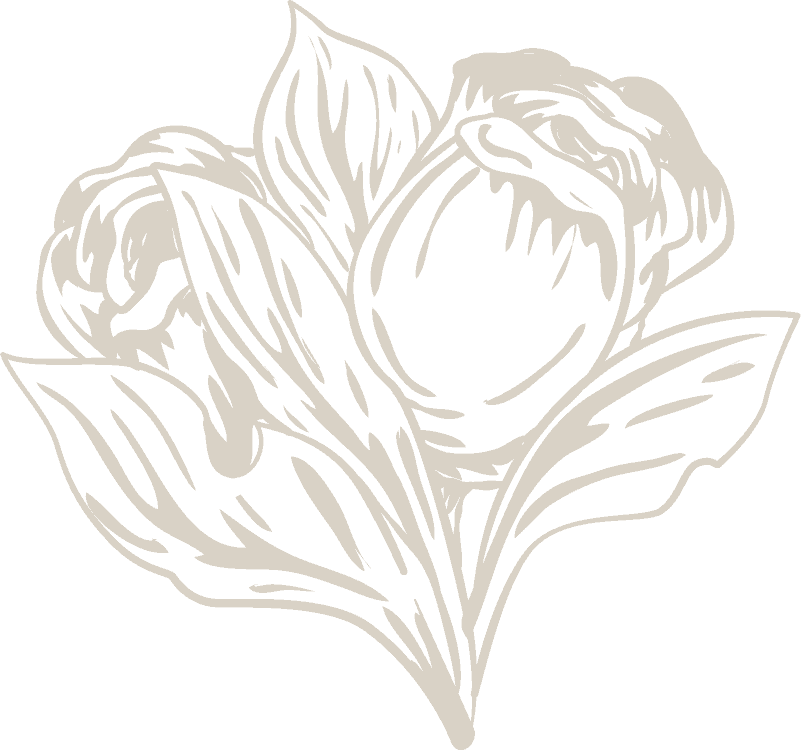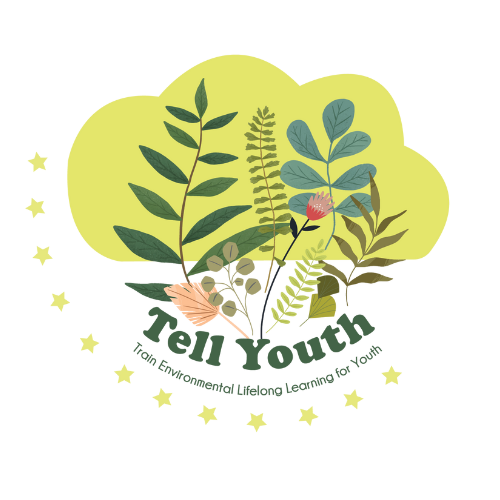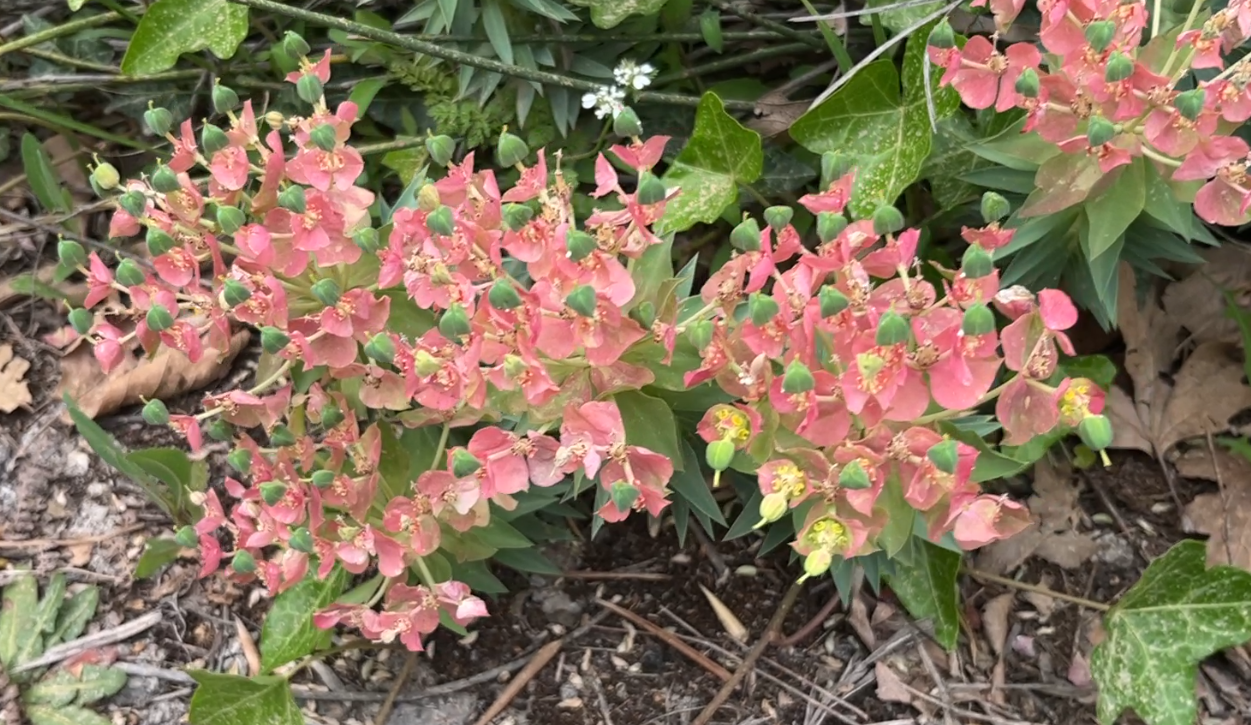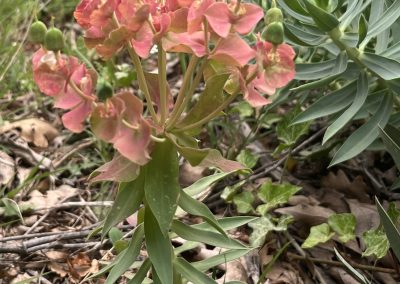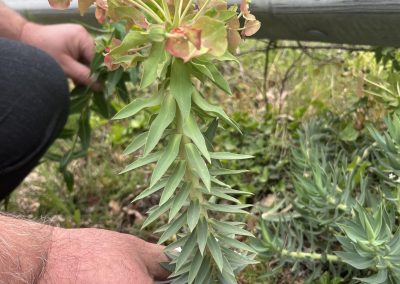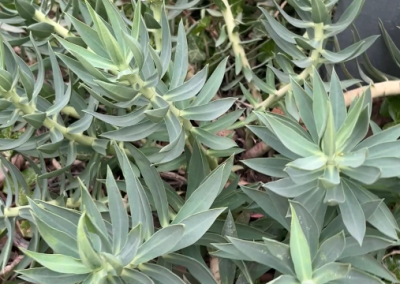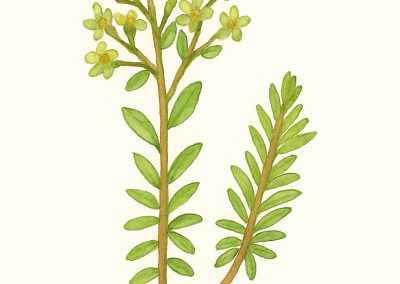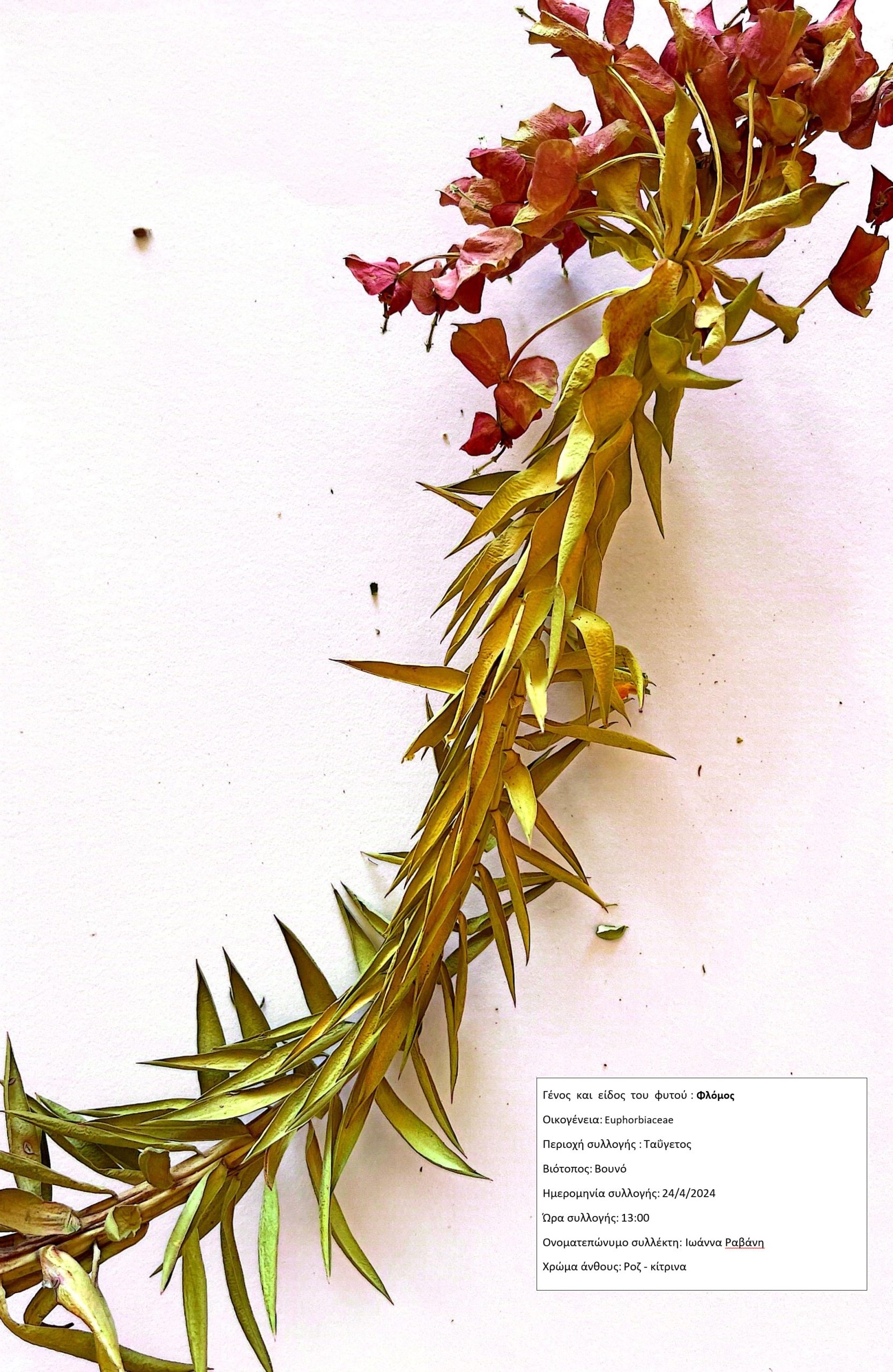Euphorbia paralias
Scientific description
Scientific name: Euphorbia paralias L.
Common name: Sea Spurge, Coastal Spurge
Kingdom: Plantae
Phylum (Division): Tracheophyta
Class: Magnoliopsida
Order: Malpighiales
Family: Euphorbiaceae
Genus: Euphorbia
Species: Euphorbia paralias
Origin:
Native to coastal regions of Europe, North Africa, and western Asia; naturalized in Australia where invasive in some areas.
Description:
Succulent perennial herb or subshrub, 20–70 cm tall. Glaucous with upright, fleshy stems. Narrow, oblong leaves arranged spirally, smaller toward top. Greenish-yellow flowers in terminal cymes spring to late summer. Exudes milky latex when cut.
Propagation:
• By seed: primary method; seeds expelled from capsule-like fruits.
• Self-sowing: common in sandy disturbed coastal habitats.
• Vegetative: rare, but stems can sometimes root.
Ecology:
Habitat: sandy beaches, dunes, coastal scrub.
Soil: tolerates poor, sandy, saline soils.
Adaptations: drought- and salt-tolerant; suited to harsh coastal environments.
Non-native areas (Australia): aggressive dune colonizer, disrupting native habitats.
Use:
Historically a purgative; latex toxic and irritant. Stabilizes dunes via root system; removed in invasive regions to protect biodiversity.
Επιστημονική ονομασία: Euphorbia paralias L.
Κοινή ονομασία: Φλόμος
Βασίλειο: Plantae
Φύλο (διαίρεση): Tracheophyta
Κλάδος: Magnoliopsida
Τάξη: Malpighiales
Οικογένεια: Euphorbiaceae
Γένος: Euphorbia
Είδος: Euphorbia paralias
Καταγωγή:
Ενδημεί στις παράκτιες περιοχές Ευρώπης, Β. Αφρικής και Δυτικής Ασίας. Φυσικοποιημένο στην Αυστραλία, όπου είναι χωροκατακτητικό.
Περιγραφή:
Ζουμερό πολυετές βότανο ή υποθάμνος, ύψος 20–70 cm. Γλαυκόχρωμο με όρθιους, σαρκώδεις βλαστούς. Στενά, επιμήκη φύλλα σπειροειδώς, μικρότερα προς την κορυφή. Πρασινοκίτρινα άνθη σε τερματικές κυψέλες από άνοιξη έως τέλος καλοκαιριού. Αποβάλλει γαλακτώδη χυμό όταν κόβεται.
Πολλαπλασιασμός:
• Με σπόρο: κύρια μέθοδος, σπόροι από καρπούς-κάψουλα.
• Αυτοσπορά: εύκολα σε αμμώδη, διαταραγμένα παράκτια ενδιαιτήματα.
• Βλαστικός: σπάνια, αλλά τα στελέχη μερικές φορές ριζώνουν.
Οικολογία:
Βιότοπος: αμμώδεις παραλίες, αμμόλοφοι, παράκτιοι θάμνοι.
Έδαφος: ανθεκτικό σε φτωχά, αμμώδη, αλατούχα.
Προσαρμογές: ανθεκτικό στην ξηρασία και το αλάτι.
Μη ιθαγενείς περιοχές (Αυστραλία): επιθετική αποίκιση αμμόλοφων, διαταράσσοντας την αυτοφυή βλάστηση.
Χρήση:
Παραδοσιακά ως καθαρτικό· το λατέξ είναι τοξικό και ερεθιστικό. Συμβάλλει στη σταθεροποίηση αμμόλοφων· αφαιρείται σε περιοχές εισβολής για προστασία της βιοποικιλότητας.
Nom scientifique: Euphorbia paralias L.
Noms communs: Euphorbe maritime, Euphorbe des dunes
Règne: Plantae
Phylum (Division): Tracheophyta
Classe: Magnoliopsida
Ordre: Malpighiales
Famille: Euphorbiaceae
Genre: Euphorbia
Espèce: Euphorbia paralias
Origine:
Régions côtières d'Europe, Afrique du Nord, Asie occidentale; naturalisée en Australie (envahissante).
Description:
Herbe ou sous-arbrisseau succulent pérenne, 20–70 cm. Glauque, tiges charnues dressées. Feuilles étroites, oblongues, spiralées. Fleurs vert-jaune en cymes terminales, printemps à fin été. Latex laiteux émis si coupé.
Propagation:
• Par graines : principale méthode.
• Auto-ensemencement : habitats côtiers sablonneux perturbés.
• Végétative : rare, tiges parfois enracinent.
Écologie:
Habitat: plages, dunes, broussailles côtières.
Sol: pauvre, sablonneux, salin.
Adaptations: tolérant sécheresse et sel.
Régions non indigènes (Australie): colonisation agressive des dunes, perturbant la végétation native.
Utilisation:
Médecine populaire comme purgatif; latex toxique et irritant. Stabilise les dunes via racines; éliminée dans zones envahies pour protéger biodiversité.
Denumire științifică: Euphorbia paralias L.
Denumire comună: Euforbie de plajă
Regn: Plantae
Încrengătura (Diviziune): Tracheophyta
Clasă: Magnoliopsida
Ordin: Malpighiales
Familie: Euphorbiaceae
Gen: Euphorbia
Specie: Euphorbia paralias
Origine:
Regiuni de coastă Europa, Africa de Nord, Asia de Vest; naturalizată în Australia, invazivă în unele zone.
Descriere:
Plantă suculentă perenă sau subarbust, 20–70 cm. Glaucă, tulpini erecte, cărnoase. Frunze înguste, alungite, spiralate. Flori galben-verzui în cime terminale, primăvară–sfârșit vară. Latex lăptos dacă este tăiat.
Înmulțire:
• Semințe: metoda principală.
• Auto-însămânțare: habitate nisipoase perturbate.
• Vegetativ: rar, tulpinile uneori prind rădăcini.
Ecologie:
Habitat: plaje nisipoase, dune, tufișuri de coastă.
Sol: sărac, nisipos, salin.
Adaptări: tolerantă la secetă și sare.
Regiuni non-native (Australia): colonizare agresivă, perturbând vegetația nativă.
Utilizare:
Folosită istoric ca purgativ; latex toxic și iritant. Stabilizează dunele cu rădăcinile; eliminată în zone invazive pentru protejarea biodiversității.
Creative writing inspired by Euphorbia paralias
Euphorbia paralias
Once, in a secluded seaside village, lived the People of the Sea, known for their wisdom and harmony with nature. Their shores were filled with rare plants, but none was as special as Euphorbia paralias, the plant that thrived in the most inhospitable sand dunes. According to legend, this plant had been planted by the sea goddess, Euthalina, as a gift of protection for her people.
Euthalina loved the People of the Sea and had blessed them with this plant, which endured salty winds and drought. The sea spurge was not only a symbol of resilience but also a healing remedy for wounded sailors. It was said that anyone lost or injured at sea, if they found the spurge and touched its leaves, would be immediately healed from exhaustion and injuries.
One day, a notorious pirate, Karakas, learned of the plant's miraculous properties and swore to claim it for himself. He invaded the village and threatened to destroy everything if they did not give him the magical plant. The villagers pleaded to the goddess Euthalina for help, and she emerged from the waves.
Euthalina told them, "The spurge is a gift of the sea. Only those who live with respect and love for nature can harness its power. Whoever takes it out of greed will suffer the consequences."
Karakas did not heed her warning. He grabbed the plant, and as he cut it, the milky sap that flowed from its stem burned his hands and blinded his eyes. The pirate fled to the sea, screaming in pain, and was never seen again.
From that day on, the sea spurge became a symbol of protection for the People of the Sea, reminding all that nature must be honored and respected. Anyone who tried to exploit its gifts out of greed would face the wrath of nature itself.
